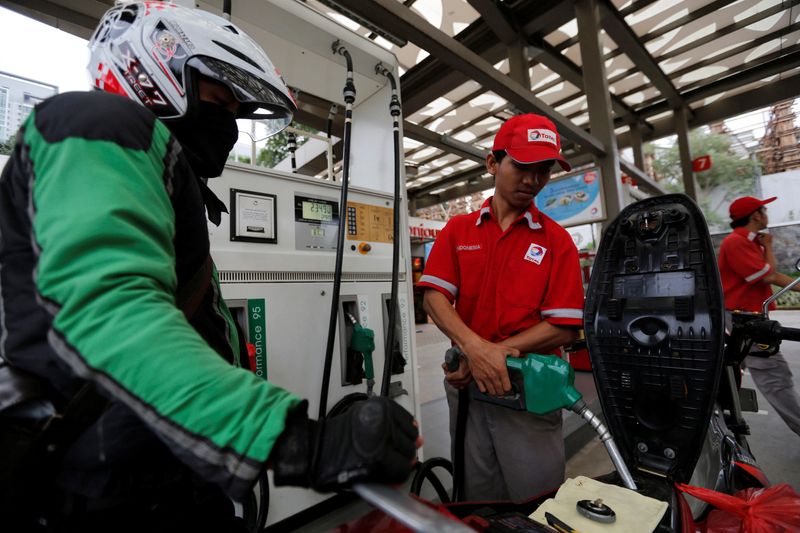JAKARTA (Reuters) - Indonesians must prepare for a potential hike in fuel prices as the government looks to control its ballooning energy subsidies amid high global oil prices, a cabinet minister said on Friday.
Southeast Asia's largest economy has tripled this year's energy subsidy budget to 502 trillion rupiah ($34.22 billion) in order to keep some fuel prices and power tariffs unchanged and manage inflation.
However, this may not be enough, as nearly all of the subsidised fuel quota has already been used, according to the finance ministry.
Indonesia's Investment Minister Bahlil Lahadalia said if the government has to increase the quota for subsidised gasoline to 29 million kilolitres from 23 million kilolitres, and assuming oil prices stay elevated and the rupiah weak, the subsidy bill could rise to up to 600 trillion rupiah.
"Please convey to the people that my feeling is we have to get ready in case a fuel price hike happens," Bahlil told a news conference, noting that it was fiscally unwise to spend 25% of government revenues on subsidies.
"The burden on the state is high. Maybe this is momentum for us to work together to keep our fiscal (position) healthy," he added.
Indonesia's Finance Minister Sri Mulyani Indrawati on Thursday said she has asked state energy firm Pertamina to limit sales of subsidised fuels.
Economists have criticised the government's decision to increase subsidies this year, saying this would take money away from projects with bigger economic impacts.
Critics have also said a widening price disparity between subsidised and unsubsidised fuels has incentivised a shift in domestic consumption patterns and smuggling to neighbouring countries, leading to increased sales of subsidised fuels.

A fuel price hike is sensitive in the world's fourth-most populous country and such a decision is usually taken by a head of government. Previous government moves to raise fuel prices have sparked street protests.
($1 = 14,670.0000 rupiah)